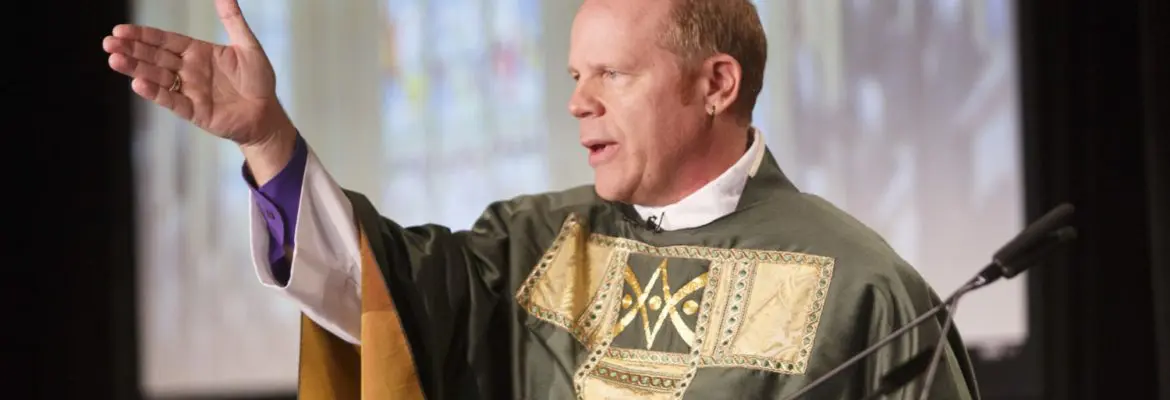
Dear Friends,
How do we live rightly with each other?
As we seek to love God and love our neighbours as ourselves, we are continually called to discern how we can live in right relationship with each other. This coming week offers us several opportunities to put that into practice.
In just three days, on Monday, Oct. 24, communities across Ontario will be holding municipal elections. Municipal governments have the most direct impact on the lives of their residents, dealing with everything from waste collection, flood prevention, zoning, emergency shelter and public transit, to delivery of social services such as housing supports, childcare subsidies and social assistance. Choosing wisely and prayerfully who will make those decisions for your community is one of the ways we demonstrate love of our neighbours and a willingness to be in right relationship with them. Casting a ballot is our right, but also a privilege that we shouldn’t take for granted. When we neglect to vote, we lose an opportunity to influence policy- and decision-makers and to hold government leaders to account.
I encourage you to read up on the platforms of your local candidates, to consider how their values and priorities will affect not only you and your family but also those in most need among your neighbours. Our Social Justice and Advocacy team has prepared a municipal elections guide to help you ask these questions. On Monday, please, take time to cast your ballot. And regardless of the outcome of the election, stay engaged with the issues. Use your voice, as well as your vote, to build a stronger community – one where no one is left behind.
A week from tomorrow, on Saturday, Oct. 29, our Diocese will host its annual Outreach and Advocacy Conference. This year’s theme, “Pointing our Feet Toward Right Relationship,” focuses primarily on our relationship as Anglicans with Indigenous peoples, both inside and outside the Church.
Over the past several years, our Church has begun a journey toward reconciliation and right relationship with Indigenous peoples. Through the Truth and Reconciliation process, and especially since the release of the TRC’s final report in 2015, more and more Canadians have become aware of the dark legacy of the Residential Schools and other aspects of the colonial project – and the role the Anglican Church, among others, has played in that history. More Anglicans are learning the truth about these institutions, participating in Orange Shirt Day and the National Indigenous Day of Prayer, and raising funds for clean water in First Nations, language reclamation projects, Residential School memorials like Toronto’s Spirit Garden, and similar initiatives.
Yet this is just the beginning of the journey. Senator Murray Sinclair, who served as chair of the Truth and Reconciliation Commission, has said that it will take decades to undo Canada’s long history of abuse toward Indigenous communities, and will require the same energy that was used in the past to harm them. “The road we travel is equal in importance to the destination we seek. There are no shortcuts. When it comes to truth and reconciliation, we are forced to go the distance.”
Bishop Riscylla Shaw, who will be the keynote speaker for the conference, agrees. “The work of untangling the Church in Canada from the colonial project is complex and requires long-term commitment. Yet our feet have been set on a new path and are pointing in a new direction, toward the shalom God means for all of us. We just need to keep walking on that path.” Even though the Residential Schools have been closed, their intergenerational impacts are still felt today, and other colonialist laws and systems, such as the Indian Act, continue to shape Indigenous-settler relations in Canada. Two of the workshops offered at this online conference will explore ongoing impacts. Another workshop will focus on what pursuing reconciliation looks like in the context of youth ministry.
Unjust systems and structures warp and obstruct right relationship with not only our Indigenous neighbours, but with many others. Recognizing this, the other workshops at this year’s conference will take a deeper look at the systemic injustices that affect prisoners and ex-prisoners, people experiencing homelessness, those who are precariously employed, Disabled people, and people seeking food sovereignty. As Deacon Claudette Taylor, a member of the Social Justice & Advocacy Committee, points out, “God calls us to shalom – to seek right relationship with all.”
Let us walk together on the ongoing journey toward that transformed relationship.
Yours in Christ,
The Rt. Rev. Andrew Asbil
Bishop of Toronto